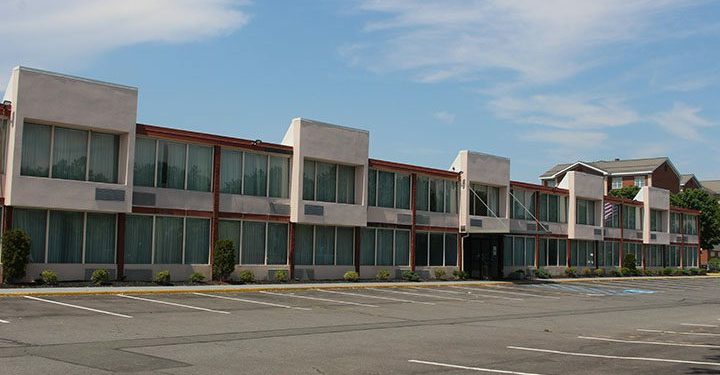Case can move forward to discovery, second case request to move pending.
COLONIE – An acting State Supreme Court Judge ruled last week that one of the court cases filed against City of Albany and New York City can move forward to discovery. Judge E. Danielle Jose-Decker rejected Albany’s motion for a summary judgment or to dismiss the case altogether.
“Irrespective of the various administrative and emergency orders and existing laws, a question of fact remains as to whether the Albany respondents acted in concert with the city of New York to relocate and house asylum seekers in the town of Colonie,” Jose-Decker wrote. “Whether the Colonie petitioners will be successful in the prosecution of this claim and other related causes of action pled, is not dispositive of whether the cause (s) of action should be dismissed at this stage of the proceedings. Further, the assertion that it is a legal impossibility that Albany respondents could have acted in concert and had any meaningful authority to relocate and house asylum seekers in the town of Colonie is unavailing.”
The case is one of two that the Town filed in response to the housing of migrants relocated to the Surestay hotel on Wolf Road on Memorial Day weekend last year.

This case was related to the coordination of the move between New York City and Colonie with the alleged assistance of officials from the City of Albany without notifying the governments where the hotel resides or coordinate care. This move, the Town alleges, essentially created an illegal migrant homeless shelter without following state regulations, including filing plans or notifications to agencies.
The ruling is not a final determination, but rather allows the case to move forward. Albany and New York City had requested a summary judgment to dismiss the case because, they said the legal arguments were so strong in their favor, it should be dismissed. It will now move forward to the discovery phase.
“I always teach my 5 children that you win with dignity and you lose with dignity. The Court’s Decision speaks for itself,” Colonie Town Supervisor Peter Crummey said. “When sworn in as an elected official, we take an oath to support the Constitution of the United States of America and the Constitution of the State of New York, including the Home Rule protections afforded therein, and I intend to continue to stay true to that oath to the best of my ability”.
The second case involving the Surestay hotel itself and owner Amandeep Dhillon, the defendants have requested a venue change from Colonie Town Court to State Supreme Court. The court has yet to rule on that request.
The Town of Colonie passed a local law in 2015 that was aimed at preventing motels from being used as substandard apartments.
At the time, Colonie was having a significant public safety problem with people living in unsafe conditions for long periods of time in hotels and motels along Central Avenue. This prompted the change to section 119 of the town code that says that people cannot stay more than 28 consecutive days or more than 60 days in a 180-day period.
Another provision in that law is that a hotel must provide town officials with a register of who is staying at the hotel when requested so officials can determine if the hotel is in compliance with the limited stay requirements.
On June 30, 34 days since New York City officials and its contractor DocGo transported and housed 24 migrants at the SureStay hotel on Wolf Road, Colonie police officials asked to see the register and the hotel management, under advice from its lawyers, refused to provide the information, Deputy Police Chief Robert Winn said.
If the migrants were determined to still be there, the hotel would be in violation of the local law.
According to the law, a violation is punishable, if found guilty, by the hotel management paying a $100-$500 fine or up to 15 days in jail for each person, each day. Police are directed by the law to issue an appearance ticket for Colonie Town Court.
Winn returned to the hotel and served the management with the appearance ticket for July 6. Because the hotel is a business, Winn also had to serve the Department of State in Albany with the same ticket, he said.
The law may be challenged on legal grounds after a Supreme Court ruling on a similar law four months after the Colonie law was enacted.
The Surestay and its management were also under fire in October when four migrants and a hotel employee in the country illegally faced a variety of charges, including rape and assault during a six-day period.
The employee was charged with the most serious charge of rape and was taken by ICE after arraignment.



